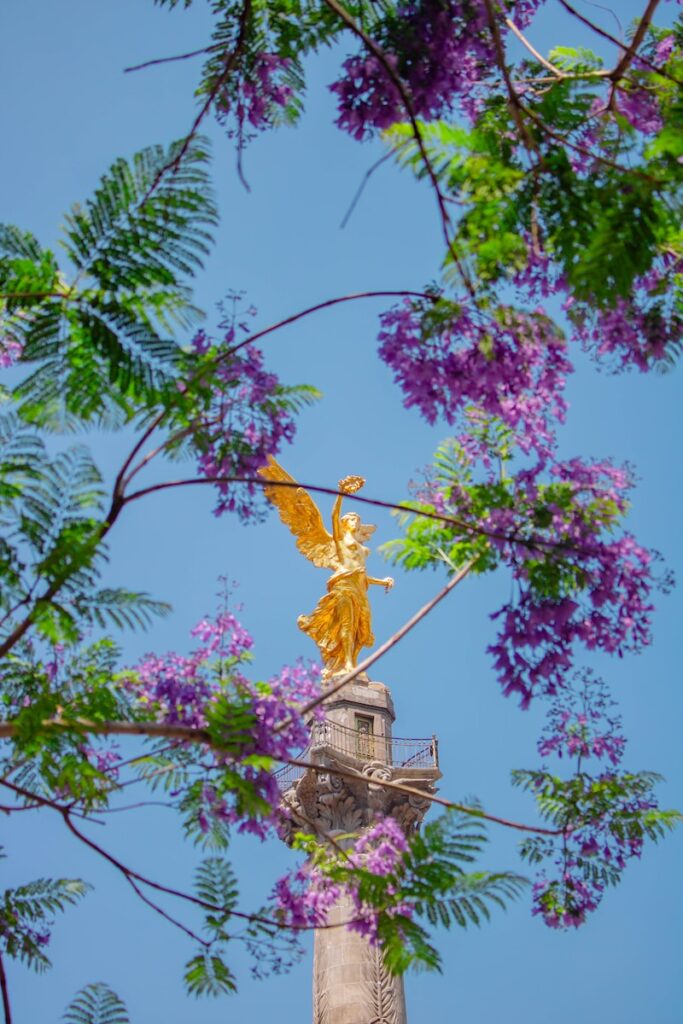I like to look down at my feet. These days they are the only thing that looks familiar.
Yet always they are framed by new, like the long windy grass that I walked on when I walked through the first park I visited here. Or cracks in the pavement that seem to have existed many years before my arrival.
This country was the country of my grandparents before they risked everything to leave it. I am just a visitor, a seed of a seed that’s long since been blown far away in the wind. And I am not a natural part of this ecosystem.
Everything here seems to exist within a delicate dance, and everyone seems to know what to expect, except for me. Little things that come naturally to those around me take me weeks to learn. Where to buy water, how to get around, how to throw your trash, and how to greet new acquaintances.
I often try to just sit idly by, slowly learning the ways, in an attempt to grasp the nuances. I also often find myself feeling like a caricature of a privileged foreigner, like someone who wishes to see their surroundings as an immersive zoo-like experience rather than the only reality that many people have ever seen.
How fascinating I can hear myself wanting to say, imitating a retiree seeing another culture for the first time. I try, but I fear that I am unable to separate my privilege from my biases.
I often wonder what it would be like if I had grown up here from the start — if, through some act of serendipity — I was raised in the country I was taught only to fear and never to admire. Would I be a part of this dance, feeling the beat and knowing where to step?
This is my third time visiting Mexico on my own accord for an extended period of time. Like the past times, it has been against the wishes of my family, against the interests of my career, and has withered my relationships in the States because what people don’t talk about is that while time heals all, it is also the great killer.
But I know that I am blessed. My friends here in Mexico do not have it so well.
They often work 12-hour days or longer and spend an hour or more commuting back and forth. They often have just one day a week off to work. And they often only make a small fraction of what US citizenship allows you to make, even as a simple laborer.
I have yet to hear any of my friends complain though, and that’s something new and different about the culture here that I find myself amazed at.
I find myself searching for ways that I can contribute but like an invasive species of fish, I worry that my very presence threatens the delicate balance of things in ways that I can’t understand. So instead, I do my best not to overspend, not to over-interact, not to over-indulge.
It’s better to observe and learn before injecting yourself, I think, although I am often overpowered by my need to socialize.
I like to visit the tianguis, rummaging through things I don’t need and rarely buy, listening to the Spanish around me, and blending into the best of my ability. I visit the callejeros and do my best to pretend that I do not have a “Made in the USA stamp” affixed to my forehead.
I sometimes feel a sense of pride that I have friends here now, I have a life here. I have those that I only speak to using my broken Spanish, like a child, only deeper toned and less fluent. I have, at times, a sense of community, with the queer street kids that I’ve found myself talking to a time or two at the Glorieta De Insurgentes that marks the edge of Mexico City’s famous queer neighborhood, Zona Rosa.
The first time I came here was with my partner, nearly 2 years ago, and while we got by it never satisfied my urge for understanding the culture and the nuances that felt so strange to me.
I was always called Mexican growing up, by my friends, within my family, by acquaintances, and by a million implicit social cues given to me by society growing up.
“You should really learn De Colores” I remember one of my elementary school teachers telling me, “It’s your culture,” she would go on to say.
But if I were to consider myself Mexican, it would not be because of the genetics passed down to me from my grandparents who grew up in Ciudad Acuña, Coahuila. Nor would it be because I have a sense of Latin-American culture by growing up in the US state of New Mexico.
After all, virtually all of my experiences in my life have been those of the average United Satesian: I said the pledge of allegiance every day at school just as my white, black, and brown American friends did. Fast food was not just a staple, but a comfort food. Home cooking in my home often referred to combining store-bought items in ways that never would have been possible in Mexico.
I know how to think thoroughly and deeply only in English, and cultural nuances that come from inherent differences in the way languages make you think can never fully be imprinted in my mind the way it is for those who grow up in Mexico.
I do not intimately know the stereotypes of different social classes, the jokes that signify the shared experiences, or the struggles of the average Mexican.
No, if I were to ever consider myself Mexican, it would be only after acclimating to society over many years, in the same way, that an Indian-American immigrant identifies as being American after jumping through the dozens of bureaucratic hurdles set up to dissuade their immigration to the US.
